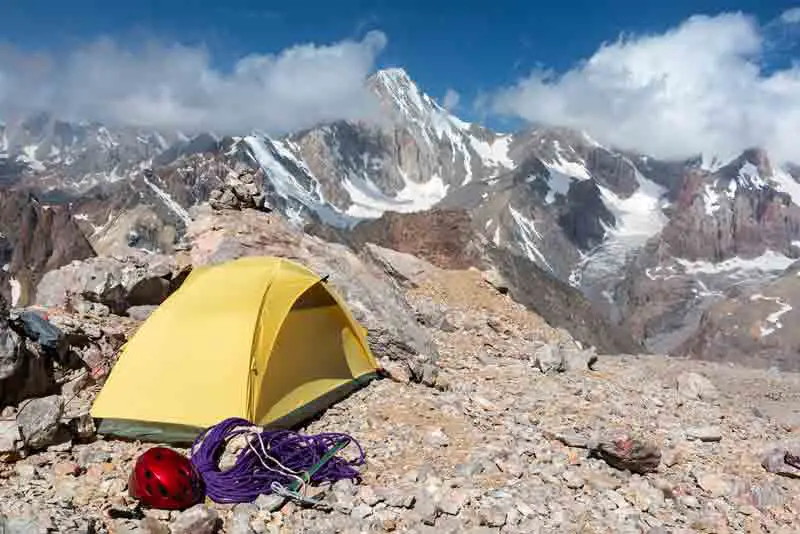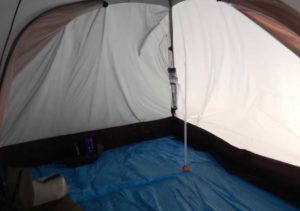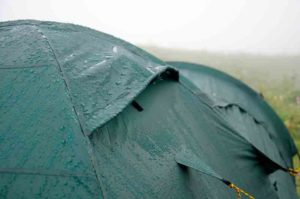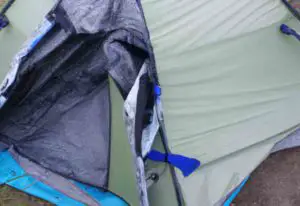When you are choosing a backpacking tent, one of the most important factors to consider is weight. You want something lightweight and easy to carry, but you don’t want to sacrifice too much in terms of quality or features. In this blog post, we will discuss the pros and cons of different weight categories for backpacking tents, as well as some tips on how to choose the right one for your needs.
The Optimum Weight for A Backpacking Tent
The optimum weight is around 3 pounds. This is light enough that it won’t weigh you down too much on your hike, but it’s also heavy enough that it will be durable and provide good protection from the elements. If you are looking for a tent in this weight range, you should expect to pay around $200-$300.
The Lightest Weight Backpacking Tents
If you are looking for the lightest weight backpacking tents, you will be looking at around 2 pounds. These tents are made with very lightweight materials and often have fewer features than their heavier counterparts. Because of this, they are usually not as durable or weather-resistant. However, they can be a good option for ultralight backpackers who are willing to sacrifice some comfort and features for a lighter load.
The Heaviest Weight Backpacking Tents
If you are looking for the heaviest weight backpacking tents, you will be looking at around 4 pounds. These tents are made with heavier materials and often have more features, such as multiple rooms or awnings. They are usually more durable and weather-resistant, but they can be a bit cumbersome to carry on long hikes.
How Do You Determine the Right Weight for Yourself?
The best way to choose the right weight for your backpacking tent is to consider your needs. If you are looking for a tent that is lightweight and easy to carry, you should go for something in the optimum weight range. If you are willing to sacrifice some features for a lighter load, you can go for a lighter weight option. If you need a more durable and weather-resistant tent, you should go for a heavier option.
When choosing a backpacking tent, weight is not the only factor to consider. You also need to think about the features you need, the durability of the tent, and your budget.
What are some other factors you should consider when choosing a backpacking tent?
Some other important factors to consider when choosing a backpacking tent include:
- The features you need. Do you need a tent with several rooms? Awnings? etc.
- The durability of the tent. Are you planning on using it in extreme weather conditions?
- Your budget. How much are you willing to spend on a backpacking tent?
- The weight of the tent. How much are you willing to carry on your hike?
What Is Too Heavy for Backpacking Tent?
A backpacking tent that is too heavy can be a real pain to carry around, and it can also limit the amount of gear you can bring with you on your trip.
Ideally, your tent should weigh no more than 2-3 pounds, which is the weight range that most backpackers consider to be the sweet spot. Anything heavier than that and you’ll start to feel the extra weight when you’re hiking, and it might cause you to leave some essential gear behind.
How Heavy Should a Tent Be?
it depends on numerous factors, such as the type of camping you plan to do (e.g. backpacking, car camping, etc.), the number of people who will be using the tent, the climate/weather conditions you anticipate encountering, and your personal preferences. That said, here are some general guidelines to help you choose a tent that is suitable for your needs:
If you plan on doing a lot of backpacking or hiking, then weight should be one of your main concerns when selecting a tent. The lighter the better! In this case, attend to reviews written by other backpackers/hikers – they are usually very honest about how much their tents weighed (including all the poles, stakes, rainfly, etc.).
If car camping is more your style, then the weight isn’t as much of an issue since you don’t have to carry your tent very far. In this case, choose a tent that has ample space for you and all your gear.
If bad weather is a possibility, go for a tent that is made with waterproof and/or water-resistant materials.
And finally, always make sure to read the reviews before purchasing any tent! Reviewers will often mention things about the tents that you might not have thought of.
Is 5lbs Heavy for A Backpacking Tent?
It depends on the type of tent. A three-person backpacking tent might weigh 5 pounds, but a one-person backpacking tent might weigh only 2 pounds.
So, it depends on the individual tent. You should always check the weight specifications before purchasing a tent, to make sure that it’s within your weight limit.
How Much Should Your Big 3 Weigh?
There is no definitive answer to this question since the amount of weight that your “big three”lift should ultimately depend on your own individual goals and available equipment. However, some basic guidelines can be followed to ensure proper progression and safety.
Generally speaking, when starting, most people should aim to lift approximately 60-70% of their body weight in the squat, deadlift, and bench press combined. So, if you weigh 150 lbs, you would ideally be looking to lift around 90 lbs in each of these lifts. As you get stronger and more experienced, you can start increasing the weight until you are eventually able to lift your body weight or more in each movement.
Is a 3-lb Sleeping Bag Too Heavy for Backpacking?
It depends on the weight of the backpacker and the length of the trip. A 3lb sleeping bag is too heavy for most backpackers, but it could be perfect for a shorter trip.
Backpackers typically carry between 20-30lbs when they’re hiking, so a 3lb sleeping bag would be a considerable percentage of their total weight. For a longer backpacking trip, backpackers will want to reduce the weight of their belongings as much as possible, and that includes their sleeping bag. A lighter sleeping bag could easily save them 1-2lbs, which can make a big difference when carrying a heavy pack.
How Heavy Should Sleep System Be Backpacking?
it depends on a variety of factors, such as the terrain you’ll be hiking in, the length of your trip, the weather conditions, and your personal preferences. However, we can provide some general guidelines to help you choose an appropriate sleeping system for backpacking.
First, consider the seasonality and climate of your destination. If you’re traveling in warm weather, you won’t need a bulky sleeping bag and can get by with lighter-weight materials. Conversely, if you’re backpacking in cold weather or at high altitudes, you’ll want a warm and comfortable sleeping bag that will protect you from the elements.
Next, think about the weight and bulk of your sleeping system. The lighter and more compact your sleeping bag and pad are, the easier they will be to carry on your back. However, you’ll want to make sure that your sleeping system is still comfortable and provides enough insulation for a good night’s sleep.
Finally, consider your personal preferences. Some backpackers prefer to travel light and minimalist, while others like to have all the comforts of home even when they’re miles from civilization. Choose a sleeping system that meets your needs and gives you the best possible experience on your backpacking trip.
What Are the Big 4 in Backpacking?
The big 4 in backpacking are your backpack, shelter, sleeping bag, and mattress. These are the most important items that you’ll need on any backpacking trip.
Your backpack is probably the most important piece of gear you’ll bring with you. It’s critical to select one that is a good fit and comfortable to wear. Your shelter can be a tent, tarp, or hammock. Your sleeping bag should be lightweight and warm enough for the conditions you’ll be camping in. And your mattress can be anything from a closed-cell foam pad to a self-inflating pad.








